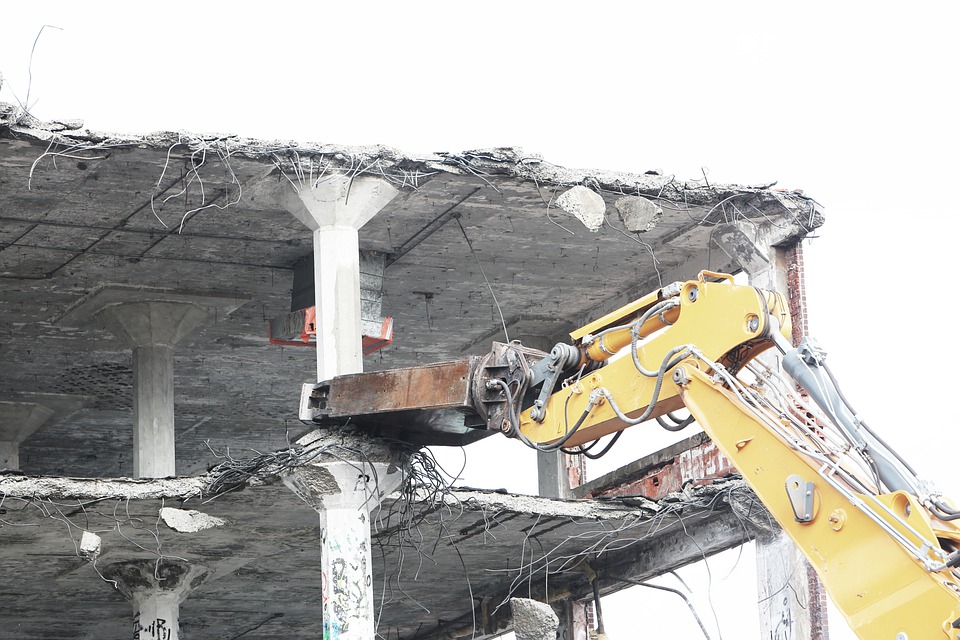UK: Ten demolition firms fined £60m for collusion and bid rigging

Ten demolition contractors have been fined a total of nearly £60 million for illegally colluding to rig bids for demolition and asbestos removal contracts.
Following an investigation launched in 2019, the Competition and Markets Authority (CMA) has provisionally concluded that the firms colluded on prices through illegal cartel agreements when submitting bids in competitive tenders for contracts. These bids were rigged with the deliberate intention of deceiving the customer that they were competitive when that was not the case, the CMA said.
The bids were rigged by one or more construction firms which agreed to submit bids that were deliberately priced to lose the tender. This practice, known as ‘cover bidding’, can result in customers paying higher prices or receiving lower quality services.
The CMA is proposing to impose fines on the businesses concerned if it reaches a final decision confirming that they have broken the law.
The fines for each are:
- Brown and Mason (£2,400,000)
- Cantillon (£1,920,000)
- Clifford Devlin (£423,615)
- DSM (£1,400,000)
- Erith (£17,568,800)
- JF Hunt (£5,600,000)
- Keltbray (£16,000,000)
- McGee (£3,766,278)
- Scudder (£8,256,264)
- Squibb (£2,000,000)
In addition, the CMA has provisionally found that seven of the firms, on at least one occasion each, were involved in arrangements by which the designated ‘losers’ of the contracts were set to be compensated by the winner. The value of this compensation varied but was higher than £500,000 in one instance. Some firms produced false invoices in an attempt to hide this part of the illegal behaviour.
The CMA has provisionally found that the collusion affected 19 contracts for demolition work in London and the Midlands, including contracts for the development of Bow Street’s Magistrates Court and Police station, the Metropolitan Police training centre, Selfridges, Oxford University, shopping centres in Reading and Taplow, and offices on the Southbank, London. Not all of the firms were involved in colluding in each of these contracts, and not every contractor who submitted a bid for these contracts was involved in the illegal collusion.
Eight of the firms have admitted their involvement in at least one instance of bid rigging between January 2013 and June 2018: Brown and Mason, Cantillon, Clifford Devlin, DSM, J F Hunt, Keltbray, McGee, and Scudder.
Two other firms, Erith and Squibb, have not admitted their involvement in any bid rigging and it should not be assumed that they have broken the law.
Michael Grenfell, the CMA’s executive director for enforcement, said: “The construction sector is hugely important to Britain’s economic well-being. Bid rigging can result in worse deals, which can leave businesses – and sometimes taxpayers – out of pocket.
“This is unacceptable, and the CMA won’t hesitate to come down hard on these activities and impose appropriate fines.”
The CMA’s findings are provisional, and it should not be assumed that any company has broken the law at this stage. The final total of any fines to be paid will also be determined at the end of the investigation.
The 19 contracts affected by the suspected cartel activity were at the following sites: Bishop Centre; MPS Training and Operations Centre, Hendon; Southbank, London; Bow Street, London on 2 separate occasions; Station Hill, Reading; Lots Road Power Station, London; Duke Street, London; Lombard House, Redhill; 18 Blackfriars Road, London; Underground car park, High Wycombe; 33 Grosvenor Place, London; Wellington House, London; Ilona Rose House, London; 44 Lincoln’s Inn Field, London; 57 Whitehall Old War Office, London; 135 Bishopsgate, London; Civic Centre Scheme, Coventry; Tinbergen Building, Oxford.
At least one of the companies has said that it intends to appeal.
Keltbray chief executive Darren James said: “We strongly condemn anti-competitive practices and treat all matters that reflect on our compliance with statutory obligations with the utmost gravity. Keltbray has cooperated fully with the CMA throughout this inquiry relating to activities between 2009 and 2017.
“Since that time, much has changed. Keltbray today is a very different organisation with the necessary controls and independent oversight in place, following the early adoption of the Wates Corporate Governance Principles for large, private companies, to ensure these isolated events could never reoccur.
“The reported CMA penalty is based on Keltbray’s total group turnover, rather than the actual level of culpability relevant to the wound down subsidiary. Keltbray is a large, highly diversified business, with demolition representing a small proportion of total revenues. Keltbray will be appealing today’s penalty decision.”























